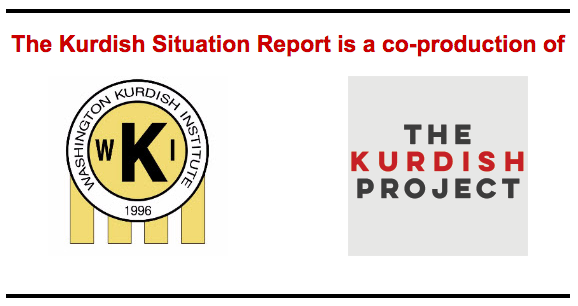Turkey’s Kurdistan (Bakur)
Tahir Elçi, the President of the Diyarbakir Bar Association, and a prominent pro-Kurdish human rights lawyer, has been shot dead in Diyarbakir, a city in the Kurdish-majority part of southeastern Turkey.
Elçi, a ‘highly influential figure’ amongst Turkish Kurds was killed while he was delivering a statement to the press. The motives and affiliations of Elçi’s killer(s) remain unknown.
Elçi was arrested by Turkish authorities in October, after voicing his opinion that the Kurdistan Worker’s Party (PKK) should not be considered a terrorist organization. Clashes between Turkish and PKK armed forces continue in and around the city of Diyarbakir (called Amed in Kurdish).
2. The Turkish military continues to bombard Kurdish villages in northern Iraq. While Turkey has used warplanes to conduct airstrikes in the Kurdish region of Iraq over the past few months, the Turkish military used artillery shells in its most recent strikes.
The bombs were launched across the Turkish-Iraqi border, hitting at least four Kurdish villages. According to Rudaw, Turkish artillery hit Kurdish villages of Bedkar, Spindar, Baluka and Kara in the Kani Masi district of Amedi.
Iraqi Kurdistan (Bashur)
3. After Kurdish Peshmerga forces liberated the Yezidi-majority region of Sinjar last week, Daesh (ISIS) forces are reportedly attempting to open a new highway across the Iraqi-Syrian border.
Before the Kurdish Peshmerga successfully liberated the region last week, Sinjar (Shingal) Province was the key that linked Daesh’s operations in Mosul to Daesh’s de-facto headquarters in the Syrian city of Raqqa.
4. Kurdish Peshmerga have repelled a Daesh chemical attack on Makhmour province in Iraq. The Peshmerga released a statement on Saturday saying, “On Nov. 26, [Daesh] extremists tried to launch several chemical mortar shells on the village of Lakja in the area of Baqirt –linked to the district of Makhmour where the Peshmerga forces are stationed.”
“The Peshmerga soldiers, who were aware for the terror operation, foiled the chemical attack before [it was] executed. Our engineering units were able to defuse these mortars before they were launched by Daesh.”
5. More mass graves were found in northern Iraq, adding to mounting evidence that Daesh has committed genocide against the Yezidi people of Sinjar. Qasim Simo, the head of security in Sinjar, said on Sunday that the graves are believed to contain 80 to 100 bodies. Two graves have been found east of Sinjar and one has been found within the town itself, bringing the total number of mass graves uncovered to five.
6. U.S. warplanes have hit an estimated 115 oil tankers controlled by Daesh in the Sinjar region. The oil tankers were allegedly delivering oil to Daesh from Syria.
Syrian Kurdistan (Rojava)
7. Agence France-Presse (AFP) reports that American soldiers are on the ground in Kobane training Syrian Kurdish fighters. These soldiers are widely understood to be the first American ground troops in Syria.
The U.S. soldiers arrived in Rojava (the Kurdish name for the Kurdish region of Syria) to advise and assist the Kurdish People’s Protection Units (YPG) and other moderate Syrian opposition forces against Daesh (ISIS).
These soldiers may be used to increase the accuracy of U.S.-led coalition airstrikes, and it’s possible that they are training Kurdish forces on how to mark targets for airstrikes.
Iranian Kurdistan (Rojhelat)
8. A Kurdish political prisoner in Iran is facing the death sentence after a lengthy trial. Shahram Ahmadi was sentenced to death for “enmity against God” after a ‘grossly unfair’ trial, and his death sentence has been upheld by the Iranian Supreme Court.

